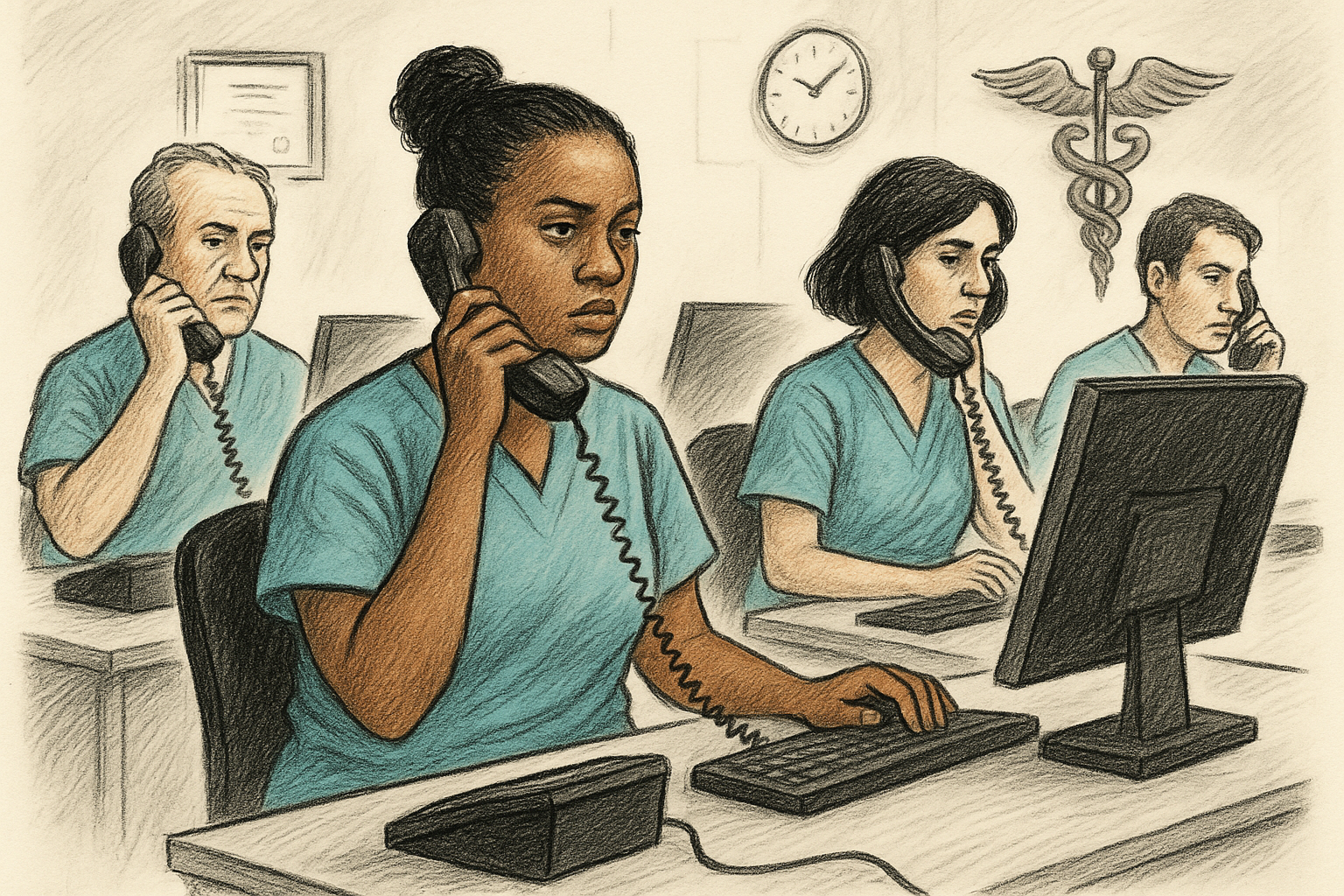If you’re involved in medical billing or healthcare administration, you’re likely familiar with a significant drain on productivity: inefficient phone calls. This isn’t just about making calls, but the entire process that consumes valuable hours, frustrates teams, and incurs substantial costs for organizations.
The Hidden Costs of Calling
Organizations in sectors like medical billing face several challenges due to outdated communication systems:
- Excessive Hold Times: Teams spend considerable time waiting on hold with various entities, such as insurance companies or patient support lines.
- Complex Phone Tree Navigation: The repetitive and often frustrating experience of navigating automated phone menus adds layers of inefficiency, sometimes leading to disconnections or dead ends.
- Manual Data Tracking: Meticulously recording call details, account numbers, and follow-up steps is often a manual, error-prone task. Critical information can be lost when employees leave, causing disruptions.
- High Cost of Verification: The recurring process of verifying identity on calls is estimated to cost U.S. businesses $11.9 billion annually just to confirm a customer’s identity.
- Impact on Morale: The constant battle with inefficient calling systems can lead to team frustration, potentially contributing to higher employee turnover.
Navigating Towards Modern Solutions
For medical billing specialists and administrators, addressing these persistent problems requires a strategic approach.
The Cost of Inaction
Continuing with traditional calling methods, or effectively “doing nothing” to improve the user’s calling experience, comes with significant hidden expenses. Your team’s valuable hours are consumed by hold music and phone tree mazes, diverting time from critical tasks like resolving complex claims or optimizing billing processes. This approach results in direct financial drain and operational friction, leading to lost information and duplicated efforts.
Limitations of Existing Tools
While certain tools address aspects of communication, many do not fully transform the user’s outbound calling workflowin a high-volume environment like medical billing:
- Traditional Call Center Solutions are primarily designed for businesses to receive customer calls, not for your team to efficiently make outbound calls. They often lack personalization and automation for the caller’s side.
- CRM Software excels at managing customer relationships and tracking interactions, but it typically isn’t built to automate calling nuances like navigating phone systems or waiting on hold. It helps record data after the call but doesn’t streamline the call itself.
- Virtual Assistants offer general assistance but often lack the specific, tailored calling workflow automation and personalization required for industry-specific, high-stakes calls in medical billing.
- Traditional Phone Systems provide basic functionality but offer no automation, intelligent insights, or collaborative features to combat time-consuming elements.
Exploring New-Generation Calling Tools
A new category of solutions is emerging, designed to address calling inefficiencies at their source. These solutions often function as a “digital twin” for calling needs, mimicking a user’s communication style and preferences to create a seamless experience. This approach directly tackles core inefficiencies by offering intelligent automation, actionable insights, and robust collaboration features.
An example of this new generation is iAllo, which focuses on revolutionizing calling workflows for both business employees and individuals. It is positioned in the upper-right corner of the competitive landscape due to its unique emphasis on automating calling workflows and personalizing the user experience.
These modern solutions can help by providing:
- Automated Call Workflows: They can offer intelligent hold management, waiting on hold for users and notifying them when a live person is on the line. They can also automatically navigate complex phone menus to help reach the right contact faster.
- Actionable Insights from Conversations: Calls can be transcribed, providing a clear record of discussions. AI can then generate summaries and suggest next steps, reducing the need for extensive manual note-taking and ensuring no critical details are missed. This is especially valuable for tracking insurance claims and patient inquiries.
- Seamless Team Collaboration: For high-volume, repetitive calls common in medical billing, these tools help employees track call histories, manage follow-ups, and collaborate effortlessly, eliminating guesswork and duplicated efforts. The urgency of this need in the medical billing sector for improved patient follow-up is considered “Very High”.
The quantifiable impact of solutions in this category can be substantial: users can expect to reclaim up to 10 hours a week by automating repetitive call tasks. This directly translates into enhanced productivity, reduced frustration, and significant operational cost savings, especially considering the multi-billion dollar cost associated with current identity verification processes. The core value of these modern solutions, exemplified by iAllo, lies in their “digital twin” capabilities and their ability to deliver enhanced value through automation and actionable insights that traditional competitors lack in personalization and efficiency.
When selecting a communication solution, prioritize tools that fundamentally redefine the calling experience by putting users in control, automating major time drains, and providing actionable insights. The goal is to empower your team to focus on meaningful interactions and higher-value tasks, rather than battling outdated systems.





